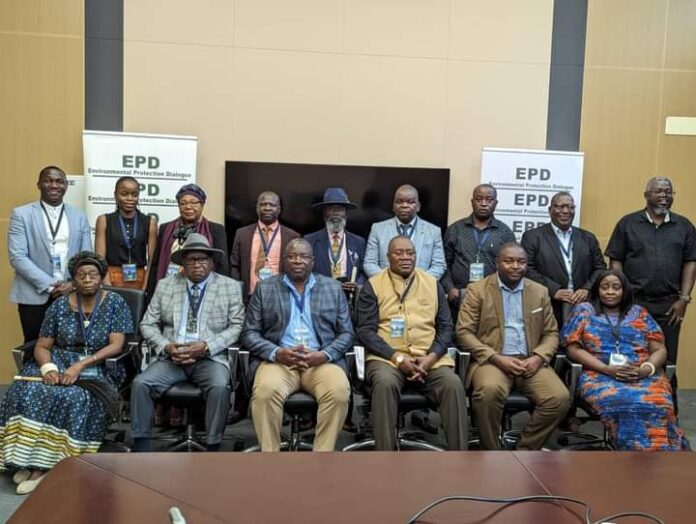Traditional leaders in Zambia are demanding for more transparency in the carbon market that is expected to grow rapidly over the next few years as countries and companies strive to meet climate targets.
Estimates indicate that demand for carbon credits is expected to increase by a factor of 15 or more and could be worth over $50 billion by 2030. But the current market is fragmented and complex. High-quality carbon credits are scarce because accounting and verification methodologies vary and pricing data remains limited.
During the second Traditional Leaders Caucus held on October 11th, 2023 in Lusaka under the theme, “Strengthening Traditional Leader’s Role in Carbon Financing for Sustainable Development in Zambia”, the traditional leaders highlighted the need for increased transparency on the share of revenue received by communities.
“Their royal highnesses are deeply concerned with the lack of transparency attributed to the finances gained from carbon initiatives. It is not known as to how much an investor benefit and what goes to the community. Hence it is important that a clear benefit-sharing mechanism be put in place. This should be done alongside the immediate enactment of a Climate Change Act in order to promote transparency and fairness between the carbon traders and the communities who are providing the carbon sinks,” Senior Chief Nkula, who read the resolutions on behalf of 12 other traditional leaders, said at the end of the event.
The event was organised by the Centre for Environment Justice (CEJ) and supported by Sweden through Musika, Bread for the World, First Quantum Minerals (FQM), United Nations Development Programme (UNDP), and the BioCarbon Partners (BCP).
The traditional leaders further resolved that awareness on carbon market ought to be increased, saying this sector if managed properly could contribute greatly to the development of rural communities.
“As traditional leaders we have expressed our interest to engage in this initiative. However, there is a need to fully understand the policy mechanisms and statutory instruments behind this initiative, understand how the carbon credits are determined, unpack the technical carbon verification processes, understand the current interim guidelines on carbon trading and how the pricing system is arrived at,” he said.
“We need community engagement, awareness, and participation. We noted with concern that there is less community engagement and participation in carbon trading among other environmental issues and decisions are made on behalf of the community.”
The traditional leaders also noted that they needed to also be equipped with information on carbon markets.
“Our mandate as traditional leaders is to serve the people and participation can only be effective once adequate information including technical training is provided for chiefs and local persons to understand the processes involved in carbon trading and the available carbon markets. We appeal to Government and different stakeholders to work with Chiefs in developing and implementing regular sensitization, workshops and training programs on crucial issues such as what exactly is carbon financing, who the players involved are, and the processes involved in establishing a successful carbon project at community level,” the resolutions read in part.
Zambia is among the countries planning to regulate the sale of carbon credits and take a share of the proceeds for its own coffers, following similar moves by Zimbabwe and other African countries aimed at tightening control of the burgeoning market.
“The biggest issue in this market is revenue sharing,” according to Minister of the Green Economy and Environment, Collins Nzovu. “If we got 50% we would be very happy, those are the figures we are looking at as well,” he told Bloomberg in an interview early this year, adding that Zambia will likely negotiate revenue-sharing deals on a case-by-case basis.
The full resolutions from the traditional leaders can be downloaded here…

